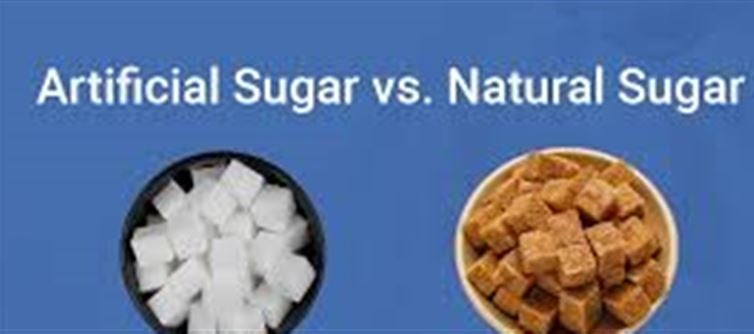
With rising awareness about sugar-related health issues, many people are turning to sweeteners. But should you go natural or artificial? Here’s a detailed comparison to help you make an informed choice.
🌿 1. Natural Sweeteners: What Are They?
Natural sweeteners are derived from plants and whole foods, offering sweetness without refined sugar. Common examples include:
· Honey – rich in antioxidants and minerals
· Stevia – zero-calorie sweetener from Stevia leaves
· Maple syrup & Dates – contain nutrients and fiber
Pros:
· Contain vitamins, minerals, and antioxidants
· Less processed than refined sugar
· May offer additional health benefits
Cons:
· Higher caloric content compared to artificial sweeteners
· Can impact blood sugar levels if consumed in excess
🧪 2. Artificial Sweeteners: What Are They?
Artificial sweeteners are chemically manufactured and are usually calorie-free. Popular types include:
· Aspartame
· Sucralose
· Saccharin
Pros:
· Provide sweet taste without calories
· Helpful for weight management and diabetes control
· Very low glycemic impact
Cons:
· Excessive consumption may lead to digestive issues in some people
· Long-term effects are still being studied
· Lack the nutritional benefits of natural sweeteners
⚖️ 3. health Comparison
· Blood sugar control: Artificial sweeteners are better for diabetics, but some natural options like stevia are also safe.
· Weight management: Artificial sweeteners have fewer calories, but moderation is key.
· Nutritional value: Natural sweeteners like honey and dates provide minerals and antioxidants, unlike artificial ones.
💡 4. Tips for Choosing the Right Sweetener
· Use natural sweeteners if you want additional nutrients.
· Choose artificial sweeteners if you are watching calories or blood sugar levels.
· Avoid overconsumption of either type to prevent potential side effects.
· Combine both wisely depending on health goals and dietary needs.
🌟 In Summary
Neither natural nor artificial sweeteners are perfect. Natural sweeteners offer some nutritional benefits but contain calories, while artificial sweeteners provide a low-calorie alternative but lack nutrients. The key is moderation and choosing the right sweetener based on your health goals.
Disclaimer:
The views and opinions expressed in this article are those of the author and do not necessarily reflect the official policy or position of any agency, organization, employer, or company. All information provided is for general informational purposes only. While every effort has been made to ensure accuracy, we make no representations or warranties of any kind, express or implied, about the completeness, reliability, or suitability of the information contained herein. Readers are advised to verify facts and seek professional advice where necessary. Any reliance placed on such information is strictly at the reader’s own risk.
.jpg)




 click and follow Indiaherald WhatsApp channel
click and follow Indiaherald WhatsApp channel